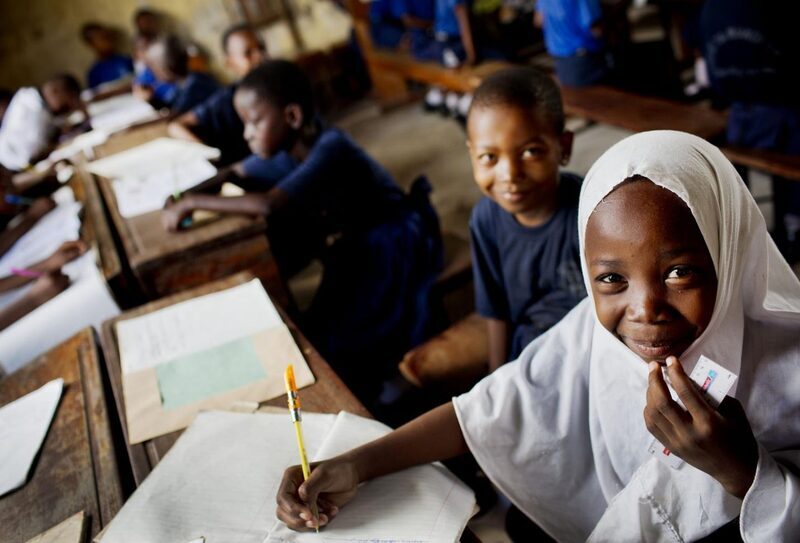
Ericsson marks Earth Day by joining Canada’s ECCC Net-Zero Challenge
Ericsson Canada marked the Earth Day by joining the Environment and Climate Change Canada’s (ECCC) Net-Zero ...

The World Bank’s $500 million Secondary Education Quality Improvement Project (SEQUIP) will help millions of Tanzanian students access and complete secondary education in safer and better learning environments.
About 6.5 million secondary school students will benefit from the project which aims at strengthening government-run schools and establishing stronger educational pathways for students who leave the formal school system.
SEQUIP uses a disbursement mechanism that is phased and releases funds in tranches only when previously agreed results have been achieved. These include increasing access to schools, improving education quality for all public secondary education options, and supporting more children to re-enter the formal public system if they drop out.
“Every child in Tanzania deserves a good education, but thousands are denied this life-changing opportunity each year. This project puts the country’s young people front and center; it also dedicates two-thirds of its resources to better and safer learning environments for girls,” said Mara Warwick, World Bank Country Director for Tanzania.
She added “This is an important step in addressing the challenges that Tanzania’s children face throughout their education. The World Bank will continue our dialogue with the government on broader issues concerning equal treatment of schoolchildren.”
Tanzania’s Fee Free Basic Education Policy has led to more children entering school: primary enrollment rose from 8.3 million to 10.1 million between 2015 and 2018, while secondary enrollment increased from 1.8 million to 2.2 million. But despite better access, the secondary education system suffers from low quality and high dropout rates. Nearly 60,000 students (30 percent) fail to complete their schooling each year, and children are not learning enough, particularly in mathematics and science, due to a lack of skilled and motivated teachers, large class sizes, and a poor learning environment. There is also a large gender gap in upper secondary school enrollment, as this learning environment has more effect on girls and their performance in exams.
Over the past two years, about 300,000 children, half of them girls, have been unable to continue their lower secondary education due to insufficient space in public schools. In addition, an estimated 5,500 Tanzanian girls who are pregnant drop out every year. SEQUIP has been designed to enable more adolescent girls and boys to transition to upper secondary education.
The project aims to help 900,000 more girls attend secondary school.
It gives pregnant girls, young mothers, and other vulnerable children who leave school early the possibility to return to the formal system and complete their education. The project tackles the issues facing pregnant girls with an approach informed by civil society organizations and NGOs, in Tanzania and around the world.
“SEQUIP’s design strives to give pregnant girls and young mothers a better chance to complete their education,” said Caren Grown, Senior Director of the Gender Group at the World Bank. “The Bank has stepped up its work to create a new generation of education programs that emphasize safe school environments for girls and boys, including measures that reduce gender-based violence, corporal punishment, bullying, and other forms of violence in and around schools. It gives girls better quality choices and opportunities for completing their secondary education.”
The project will be implemented under the Bank’s new Environmental and Social Framework; the government has committed to offering all stakeholders opportunities to engage in consultations during project implementation and to supporting construction of school infrastructure that is safe and built to good environmental and social standards. Citizen engagement in the project will be enhanced through civil society input and strong mechanisms to redress grievances.
The population of secondary education students in Tanzania could double to 4.1 million by 2024. The five-year SEQUIP operation will help address this demand through four components, with disbursement of funds linked to clearly defined, measurable, and independently verified results through four components.
The four components include empowering girls through secondary education and life skills; offering digitally-enabled effective teaching and learning; reducing barriers to girls’ education by facilitating access to secondary schools; as well as project coordination, monitoring, and evaluation.
Ericsson Canada marked the Earth Day by joining the Environment and Climate Change Canada’s (ECCC) Net-Zero ...
Asia is warming faster than the global average. The warming trend has nearly doubled since ...
IKEA Supply AG and the International Organization for Migration (IOM) team up to promote the ...


اترك تعليقا